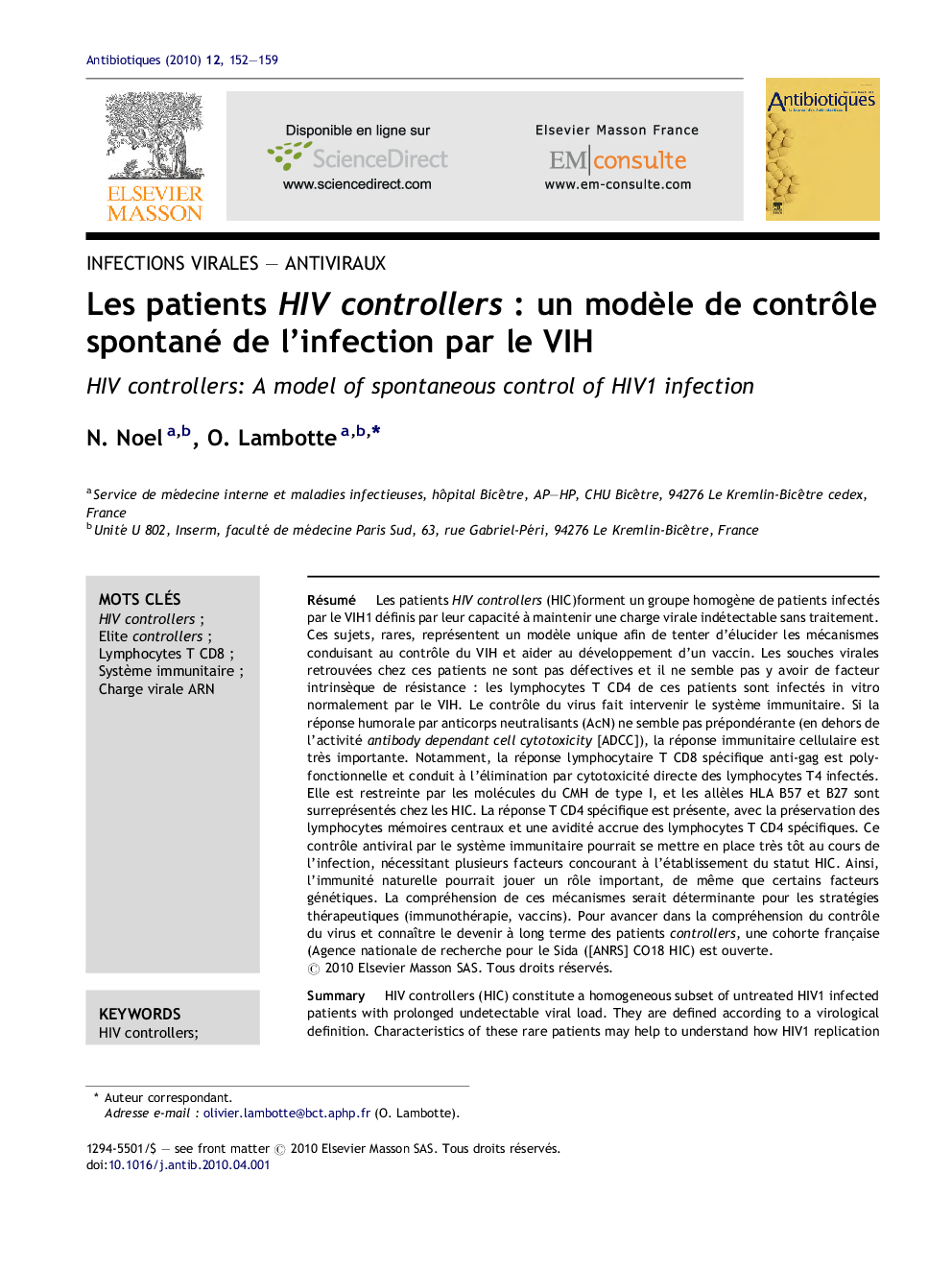| Article ID | Journal | Published Year | Pages | File Type |
|---|---|---|---|---|
| 3395984 | Antibiotiques | 2010 | 8 Pages |
Abstract
HIV controllers (HIC) constitute a homogeneous subset of untreated HIV1Â infected patients with prolonged undetectable viral load. They are defined according to a virological definition. Characteristics of these rare patients may help to understand how HIV1Â replication can be controlled. This could lead to help vaccine development. These patients are infected by replication competent virus strains. Their CD4Â T cells are fully susceptible to HIV infection, and till now, no intrinsic host resistance factor has been found. Control of the virus is related to an immune pathway. Humoral immune response (neutralizing antibodies) is heterogeneous but Antibody Dependant Cell Cytotoxicity (ADCC) seems to be higher in controllers. T cell immune response seems to be the most important. Specific anti-gag CD8+ T cell response is multifunctional and leads to elimination of infected CD4+ T cells by cytotoxic mechanisms. This response is HLA I restricted, and HLA B27Â and B57Â alleles are overrepresented in HIC. Specific CD4+ T cell response and central memory T cells are preserved. High avidity of HIV-specific CD4Â T cells allows a rapid anti-HIV response. This anti-HIV1Â control may be efficient early after the infection. Innate immunity combined with unknown genetic factors may be important. A better knowledge of the mechanisms underlying this spontaneous control of HIV infection should help to provide new clues for the design of therapeutic strategies or vaccine. To better understand the mechanisms explaining the rare HIV controller phenotype and to facilitate the long-term follow-up of these rare patients, a French cohort (Agence nationale de recherche pour le Sida [ANRS] CO18Â HIC) was created.
Related Topics
Health Sciences
Medicine and Dentistry
Infectious Diseases
Authors
N. Noel, O. Lambotte,
